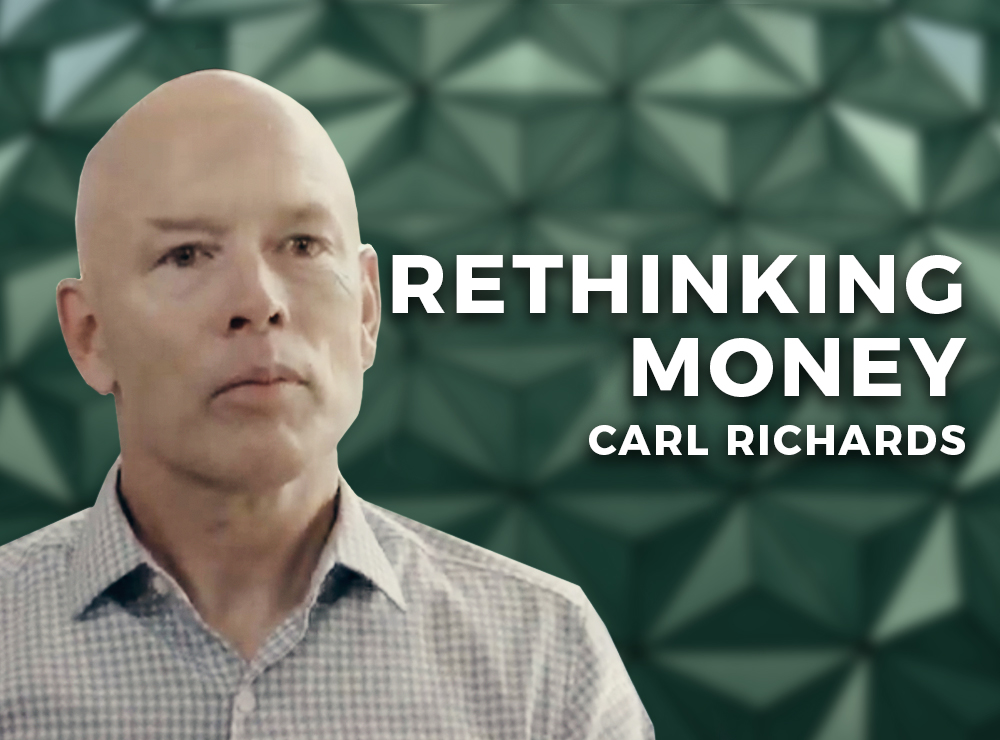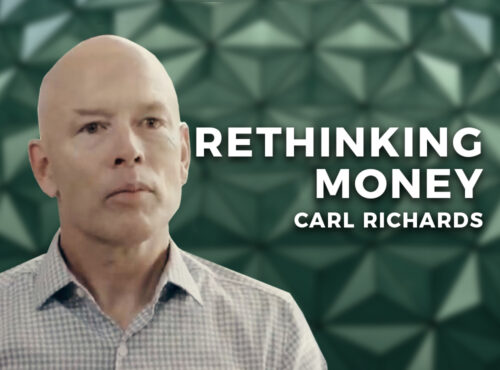
Welcome to the final part of our series Rethinking Money with CARL RICHARDS. Carl is an expert in human behaviour — specifically in relation to money.
To round off the series, we’re addressing one of the most important questions everyone should ask themselves: How much is enough? How much money do I need to live the life I want to lead?
TEBI: Carl, how important is it, at any stage of life, to work out how much money you need to sustain your desired lifestyle?
CR: Most of the challenges people face when it comes to money, spending, saving and so on, come down to one simple concept and that is defining what enough is. Getting comfortable with your enough.
Part of the problem here is there’s nobody who can tell you the answer. There’s nobody who can say you should spend money on that weekend trip with the family, or you should save it because you might need it 30 years from now.
So we really have to feel our way through it, and I think you can only do it after you’ve done all the spreadsheet work — all of that stuff that financial advisers help people with. After you’ve done the spreadsheet work, there’s an answer that lies inside.
(The well-known financial adviser and author) Nick Murray talks about “places on a chart versus places in the heart”. I happen to think of it as “spreadsheet versus your life”.
You do the spreadsheet — that’s incredibly important — and then you tear it up, you do your yoga, or you go on your morning walk, whatever you do to get quiet and say, Which one’s more valuable to me? You’re the only one who will know that answer. That will get you closer to working out your enough.
Sometimes you’ll say that experience isn’t as important as making sure we have money 20 years from now, and sometimes you’ll say, Right now, our family really needs this. And both of those times you’ll be right.
Part of the problem, as we discussed earlier in the series, is that we confuse money with happiness. What does the evidence tell us about the link between the two?
One of my favourite lines in Elizabeth Dunn and Michael Norton’s book Happy Money is, “If money doesn’t make you happy, then you probably aren’t spending it right.” I love that idea of aligning our spending with what actually drives happiness, instead of the allure of the shiny object.
The research is pretty clear. Experiences bring more happiness than stuff, and those experiences include experiences today and experiences 20 years from now. Experiences that are still far off you’ll have a hard time even imagining, because when we think of ourselves 20 years in the future, we have the same emotional connection as we do with a stranger.
It’s really hard to think about our future selves when we’re also fighting against this need for instant gratification. We’re not wired to deal with surplus. No animal is, other than squirrels, and I’ve been told that squirrels store things because they’re dumb and they only find 20% of what they store!
But the rest of us? We’re not wired to think about tomorrow. We need to give careful thought to what we need to set aside for future experiences and what we need to do for our happiness now.
A lot of people make the mistake of thinking that if only they were earning a certain salary each year, they would be happy. But it’s not that simple, is it?
This challenge with “if only” — “if only I had that item” or “if only I earned more” — is that it’s just not true! The research is clear about that. They’ve even identified some number — I think it was $75,000 per year — and said that if you earn anything beyond that your happiness didn’t increase.
There’s a whole bunch of challenges to working out that number, like location and cost of living and size of family and all those other things. The point is valid. But forget the number; don’t get distracted by it.
The point is, at a certain level, there is decreasing marginal utility. And this is true with ice cream, chocolate chip cookies, running — with everything.
Think about the added benefit of one more bite of ice cream. Bite one is the best! Bite two is really awesome! You get to bite 47, and it’s actually getting worse. It’s the same with income. Unless we’re really clear about how we’re using it, just earning more isn’t going to make you any happier.
A common problem people have is deciding how big a house to buy. Should they aim for the biggest or most expensive one they can afford? Or should they settle for something more modest. What are your thoughts on that?
One of the things we get most confused about is this idea of “bigger is better”, or “more is better”, and it’s a real problem when thinking about housing.
Again, the research is super clear. There’s a really cool movement — not the tiny house movement — that promotes the idea of homes as really useful spaces, built really well.
You can enjoy a smaller house — with better construction and better materials, that’s more aligned with what you want — much more than you would a McMansion or whatever you want to call it.
It wasn’t a giant conspiracy theory to get us to think that more is better; it was just a false promise. We’re just hard-wired to think that people must be happy because they live in a big castle.
We all know it, and we’ve all done it. It just doesn’t make us happier.
Thank you to Carl Richards for assisting with this series. You can find out more about his work by visiting the Behavior Gap website.
Also in this series:
Do I really need the latest iPhone?
The key to controlling our spending
Don’t judge people based on money
No one sees their own blind spots
© The Evidence-Based Investor MMXX







